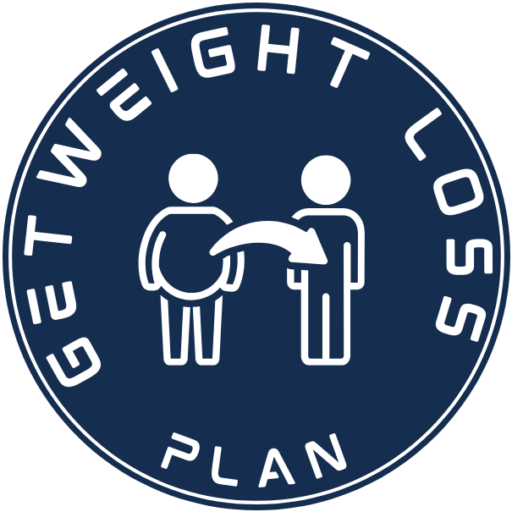Understanding the Basics of Weight Loss
Weight loss fundamentally revolves around the balance between calorie intake and calorie expenditure. The basic principle is creating a calorie deficit, which means consuming fewer calories than your body needs to maintain its current weight. This deficit prompts the body to utilize stored fat for energy, leading to weight loss. Understanding this concept is crucial for anyone aiming to achieve rapid and healthy weight loss.
Metabolism plays a significant role in this process. It refers to the series of chemical reactions that occur within the body to maintain life, including converting food into energy. Everyone’s metabolic rate is different, influenced by factors such as age, gender, and genetic predisposition. Higher metabolic rates lead to faster calorie burning, whereas slower rates require a more cautious approach to diet and exercise.
The role of macronutrients—proteins, fats, and carbohydrates—cannot be overstated. Each macronutrient affects weight loss differently. Proteins are essential for muscle repair and growth, fats are necessary for hormone production and cell structure, and carbohydrates provide the primary energy source. A balanced intake of these macronutrients ensures the body functions optimally while losing weight.
Setting realistic goals is another cornerstone of effective weight loss. Rapid weight loss can be tempting, but it’s important to understand that sustainable results are achieved gradually. Setting attainable milestones helps maintain motivation and reduces the risk of burnout or discouragement. Recognizing that weight loss is a marathon, not a sprint, can lead to healthier habits and long-term success.
Calculating daily caloric needs involves considering various factors such as age, gender, weight, height, and activity level. Tools like the Basal Metabolic Rate (BMR) calculator can provide an estimate of how many calories your body needs at rest. Adding the calories burned through physical activity gives a clearer picture of the total daily caloric requirement. Tailoring your diet and exercise plan to these needs enhances the effectiveness of your weight loss journey.
Effective Diet Strategies for Rapid Weight Loss
When aiming for rapid weight loss, it is essential to adopt dietary strategies that are both effective and sustainable. One popular approach is the low-carb diet, which focuses on reducing carbohydrate intake while increasing the consumption of protein and healthy fats. This method can help to reduce hunger and promote fat loss. The ketogenic diet, a high-fat, moderate-protein, and very low-carb diet, takes this concept further by encouraging the body to enter a state of ketosis, where it burns fat for energy instead of carbohydrates.
Intermittent fasting is another effective strategy, involving cycles of eating and fasting. Common methods include the 16/8 method, where you fast for 16 hours and eat during an 8-hour window, and the 5:2 diet, which involves eating normally for five days and restricting calorie intake to 500-600 calories on two non-consecutive days. These fasting periods can improve metabolism and help the body to burn fat more efficiently.
The Mediterranean diet, renowned for its heart-healthy benefits, emphasizes whole foods such as fruits, vegetables, whole grains, lean proteins, and healthy fats like olive oil. This diet is rich in nutrients and antioxidants, promoting not only weight loss but also overall health. Choosing nutrient-dense foods ensures you get essential vitamins and minerals while keeping calorie intake in check.
Portion control is crucial for rapid weight loss. Using smaller plates, measuring portions, and being mindful of serving sizes can help prevent overeating. Staying hydrated is equally important, as water aids in digestion and can help control hunger. Aim to drink at least eight glasses of water a day.
Practical tips for meal planning include preparing meals in advance, creating a grocery list based on healthy recipes, and avoiding shopping when hungry to prevent impulse buys of unhealthy snacks. Incorporating healthy snacks such as nuts, fruits, and yogurt can keep hunger at bay and support your weight loss goals.
Common pitfalls to avoid include skipping meals, which can lead to overeating later, and consuming too many processed foods, which are often high in sugars and unhealthy fats. By following these effective diet strategies, you can achieve rapid and healthy weight loss while maintaining a balanced and nutritious diet.
Incorporating Exercise for Maximum Results
Exercise is a crucial component of any effective weight loss plan. Different types of workouts, including cardio, strength training, and High-Intensity Interval Training (HIIT), play distinct roles in burning fat and building muscle. Understanding these can help you tailor a fitness regimen that accelerates your weight loss journey while promoting overall health and well-being.
Cardio exercises, such as running, cycling, and swimming, are excellent for burning calories and improving cardiovascular health. Engaging in at least 150 minutes of moderate-intensity or 75 minutes of high-intensity cardio per week can significantly aid in weight loss. Incorporate activities you enjoy to make it easier to stay consistent.
Strength training, on the other hand, focuses on building muscle mass, which in turn boosts your metabolism. Incorporating weight lifting, resistance band exercises, or body-weight exercises like push-ups and squats into your routine at least two days a week can enhance muscle growth and improve overall body composition. As muscle burns more calories at rest compared to fat, this can contribute to more efficient weight loss.
HIIT combines the best of both worlds by alternating short bursts of intense activity with brief periods of rest or low-intensity exercise. This type of training not only burns a significant number of calories in a short amount of time but also increases your metabolic rate, allowing your body to continue burning calories even after the workout is completed. A typical HIIT session could involve 20 seconds of sprinting followed by 40 seconds of walking, repeated for 15-20 minutes.
Staying motivated and consistent is key to reaping the benefits of exercise. Setting realistic goals, tracking your progress, and varying your workout routines can prevent boredom and burnout. Additionally, finding a workout buddy or joining a fitness class can provide accountability and make exercise more enjoyable.
Beyond weight loss, regular physical activity offers numerous benefits, including improved mood, reduced anxiety, and enhanced overall health. Exercise stimulates the release of endorphins, which can help reduce stress and promote a sense of well-being. It also strengthens the heart, improves lung function, and can lower the risk of chronic diseases such as diabetes and hypertension.
Maintaining Weight Loss and Long-Term Health
Achieving your desired weight is a significant milestone, but maintaining that weight and adopting a healthy lifestyle for the long term is equally crucial. Sustaining weight loss involves a combination of continued regular physical activity and maintaining healthy eating habits. Engaging in regular exercise helps prevent weight regain by boosting metabolism and enhancing overall physical fitness. Aim for at least 150 minutes of moderate-intensity aerobic activity per week, supplemented with muscle-strengthening activities on two or more days a week.
Healthy eating habits are the cornerstone of long-term weight management. Focus on a balanced diet rich in vegetables, fruits, whole grains, lean proteins, and healthy fats. Portion control and mindful eating are essential practices to avoid overeating. Incorporate a variety of nutrient-dense foods to ensure you receive all the necessary vitamins and minerals your body needs to function optimally.
The psychological aspects of weight management cannot be overlooked. Stress and emotional eating can significantly hinder your progress. It is vital to develop healthy coping mechanisms to deal with stress, such as practicing mindfulness, engaging in relaxation techniques, or pursuing hobbies that bring joy and satisfaction. Building a strong support system, whether through friends, family, or support groups, can provide the encouragement and accountability needed to stay on track.
Setting new goals and celebrating milestones are practical strategies for maintaining motivation. Establishing short-term, achievable goals can make the journey more manageable and provide a sense of accomplishment. Celebrate your successes, no matter how small, to reinforce positive behaviors and maintain enthusiasm. Recognize that weight management is a lifelong journey and that occasional setbacks are normal. What matters most is your ability to persevere and stay committed to your healthier lifestyle.


Leave a Reply